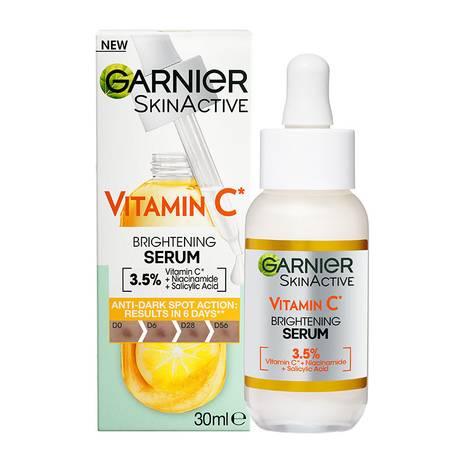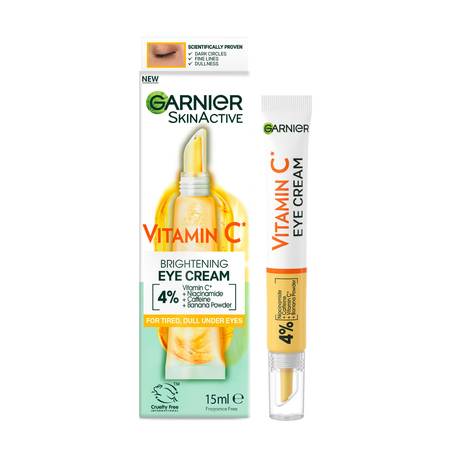When the word antioxidant comes up, your mind might jump to images of overpriced superfood smoothies packed with blueberries and hard-to-pronounce powders that promise to make you 'glow from within'.
While they're delicious and great for our bodies, antioxdiants have also been making a buzz in the skincare scene for quite some time now, because of their ability to protect the skin from damage.
But what are the exact benefits of incorporating an antioxidant into your skincare routine? And how do you go about picking one that best suits your skin type?
To find out, we spoke to Dr Ritu Gupta of Platinum Dermatology — so you can start to incorporate products like Garnier's Vitamin C Brightening Serum into your routine effectively (and with ease).
AdvertisementADVERTISEMENT
Refinery29 Australia: What are antioxidants in skincare, and why are they so important for our skin?
Dr. Gupta: Antioxidants scavenge for harmful molecules, also known as free radicals. Free radicals are generated by ultraviolet radiation and pollution in our everyday life (like cigarette smoke). These molecules damage the DNA within our skin, which can lead to a reduced quality of our skin barrier (the stratum corneum). This can then lead to the reduction in the oil that we produce, resulting in stress on the cells and also ageing.
How do antioxidants work?
Essentially, antioxidants work to either prevent damage, intercept it or to repair it – the best antioxidants do a combination of all three. What they're doing is reducing the free radicals, reducing the oxidative stress on the cells and reducing inflammation. The overall result of this is that they create better conditions for healthy skin.
When using an antioxidant, it's best to first clean the skin to get rid of the pollution (and obviously makeup or any grime). Then, to improve the structure and function of the skin barrier, moisturise and use some sun protection when using an antioxidant.
What are the different kinds of antioxidants?
Antioxidants are basically divided into water soluble and fat soluble categories, and all antioxidants can be helpful for any skin type. The main water soluble ones are vitamin C (which is probably the best known antioxidant) and glutathione. The rest are largely fat soluble.
Vitamin C reduces the sunburn cell formation from ultraviolet radiation and therefore that also helps with reducing the stress on the skin. Another very commonly known antioxidant is vitamin E (also known as alpha tocopheryl, and works together well with vitamin C).
AdvertisementADVERTISEMENT
Coenzyme Q is also quite a well-known antioxidant, as well as carotenoids and uric acid lycopene.
What antioxidants work best for sensitive skin?
I would recommend starting with a low concentration of a topical retinoid and also introducing it gradually (either every second or third night, working up to using it every night leaving it on overnight). Some people who have really sensitive skin might even need to do a short contact application for an hour and then wash it off. I would suggest maybe after a couple of nights increase to two hours (and then so on).
What types of antioxidants are best for ageing skin?
They're all good, but the most important things to remember are sun protection, sun avoidance and not smoking to assist our skin as we get older. Vitamin A is generally the best, but it depends on concentration and chemical formulation of the product.
Is it better to use antioxidants in serum form? Or are they just as effective within our moisturisers and creams?
Any reputable skin care will be formulated in a way that maximises its penetration into the skin and its effect. Most of these antioxidants like vitamin C, and glutathione work best in a serum because they're water soluble. Vitamin A can work best in a moisturiser, and mixed with sunscreen (of course they are equally as effective as straight sunscreens). It's just a matter of applying and reapplying and applying the right amount.
AdvertisementADVERTISEMENT









